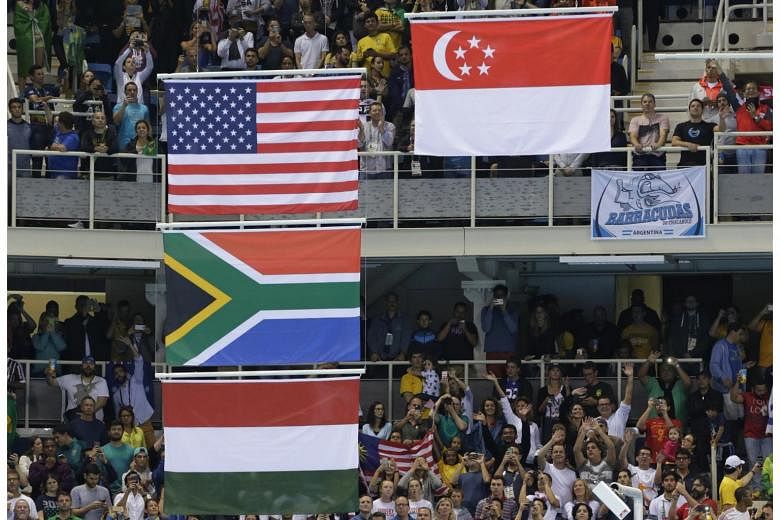RIO DE JANEIRO - Everything is bigger at the Olympics. I've covered three SEA Games and a Commonwealth Games, heard colleagues' tales about the Asian Games. But nothing matches the Olympics for size.
The Rio Games were massive in terms of participation. There were 206 countries, plus one refugee team, totalling more than 11,000 athletes which is several times more than any other major multi-sport competition.
That's a lot of languages, accents and country codes (hashtags for Twitter) to take in. Sign language and a smile usually work though.
The athletes themselves are huge too, and I don't mean just those 130kg wrestlers or 170kg weightlifters. Some of the planet's biggest sports stars had competed in Brazil.
One day I'm watching American swimmer Michael Phelps defying age to win the 200m individual medley, the next it's Jamaican sprinter Usain Bolt bending the laws of motion in the 100m. Another day, I pop in to the Maria Lenk Aquatic Center to catch a glimpse of China's Wu Minxia cement her status as one of the great divers of any generation.
These were their final Games and it was a privilege to have seen them.
The size of ambitions and sporting dreams are also much larger at the Olympics; and prizes at the Rio Games are the biggest yet. Each medal, regardless of colour, weighs 500g, which is the heaviest ever at the Summer Games.
The sight of Fijian rugby sevens captain Osea Kolinisau, all muscle and toughness on the field, sobbing uncontrollably on the bench as his team-mates closed out the men's final against Britain to win gold - the country's first Olympic medal - was a reminder that fairy tales are possible.
Losses are also magnified manifold as four years of training and sacrifice do not necessarily lead to a piece of shiny metal, only a name on the printed results sheet.
I watched as Chinese gymnast Wang Yan, tiny in size (1.4m) and age (she's 16), finish fifth in the floor exercise and later unable to hold back her tears when interviewed. The three cameras were fixed on her, so compelling and raw was her pain. The Olympics can be a cruel place.
Covering the Games, with 306 events across 28 sports, is a huge task. There are 25,000 accredited members of the media - one look at the packed buses and I'm inclined to believe that's a conservative number - and some mixed zones are more cramped than a Justin Beiber concert. It is an enormous logistical operation that will shock any rookie like myself.
Even the sprawling main press centre is a sight to behold. There are rows from A to O with a television on almost every other pillar showing a different sport.
Rowing, shooting, fencing, handball, equestrian, judo and tennis, featuring the planet's fastest, strongest, fittest were on the screens when I walked in. It was heaven for the attention deficit sports fan.
The Olympics' television audience is on a different scale. It is estimated that 3.5 billion, or half the world's population, tuned in at some point for the Rio Games. Only football's World Cup commands a bigger global viewership.
But the best parts for me were not necessarily available on the television. It was just watching the Singapore flag being slowly tied to the lift during Joseph Schooling's victory ceremony.
A tiny country at the top on sport's grandest stage.



